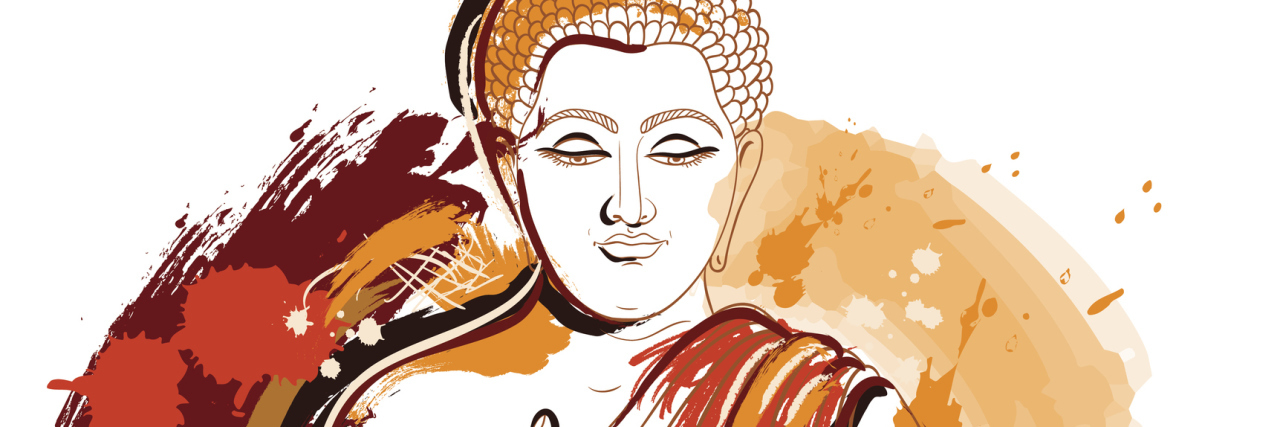How Tapping Into My 'Inner-Buddha' Helps Me Through Health Crises
You know how many of us know exactly what to say to our best friends in crisis, like we’ve become insta-therapists, even surprising ourselves? My friends think I have all this wonderful insight and even I start to believe myself. I hang up the phone with pride, feeling a small victory and start to channel my inner-Buddha therapist that I will call Alex.
I need Alex just as much as my friend does. However, I realize I’m too tired to think and exhaustion takes over.
Just minutes after my friend called me with a crisis, I decide to lay in bed after having already slept the greater part of the day. My heart is pounding fast, I have extreme nausea and my mind is headed down a very familiar “rabbit hole.”
Not unlike the rabbit hole in “Alice In Wonderland,” I feel confused and I don’t know which way to go or quite how to make sense of it all. Unlike the movie, I don’t have the wonderful guidance, from strangers, to help me understand the right path and I’m too sick for a tea party. I shut down. How did I get here so quickly?
My mind doesn’t seem to calm down. My thoughts are deeper and I am hyper-focused about all the stressful parts of my life. Fear sets in once again and my inner-Buddha tries her best to help me out of that “rabbit hole.”
Sometimes “she’s” helpful and sometimes I realize just how annoying “she” is and wonder if I’m really helping my friend at all.
See, even though I may know the right thing to say, the reality is that execution is far harder than simply taking my “words of wisdom” and expect that “insight” to change things.
The “conversation” goes a little like this:
Alex: Learn to accept the things you can’t change. Stressing about it doesn’t help and will only create an environment conducive to greater inflammation and more chronic pain.
Me: (completely annoyed and sarcastic) I understand the Serenity prayer, Alex. I accept the things I can’t change. I can’t seem to control these feelings despite your wonderful, overplayed and canned advice. (Probably what my friend would really like to say to me.)
Alex: Take a deep breath. Do that over and over until your heart slows down. You sound like you are having a mild panic attack. Take your medicine for nausea and let me know how you feel in 20 minutes. [If speaking to your friend, you would stay on the phone with them.]
Me: Thanks, that helped. Much better, Alex. I still can’t stop thinking of my stressors, though.
Alex: You should write each one of your stressors out, like you do for your gratitudes or the list we wrote last week of all the things that make you happy. Getting it out on paper has a way of taking it out of your head – where those stressors are unorganized and floating around, so in order to remember your brain just keeps it popping up. Once all your stressors are written down, label them in order of high to low and we will work on each one together.
As you may have guessed, my inner-Buddha, Alex, is nothing more than mindfulness and using my rational brain to work through problems in a common-sense approach. I just personified my rational brain as another version of me, pretending there is a wise and calm Buddha lady in its place.
My brain isn’t quite rational when it’s under too much stress, and this is especially true when dealing with chronic pain. Stress is already taking too much of a hold on our immune systems. This is why mindfulness really helps. So, the next time you need advice, see what your “inner-Alex” says to you. You may be surprised how much it actually helps.
We want to hear your story. Become a Mighty contributor here.
Thinkstock photo via kateja_f.

